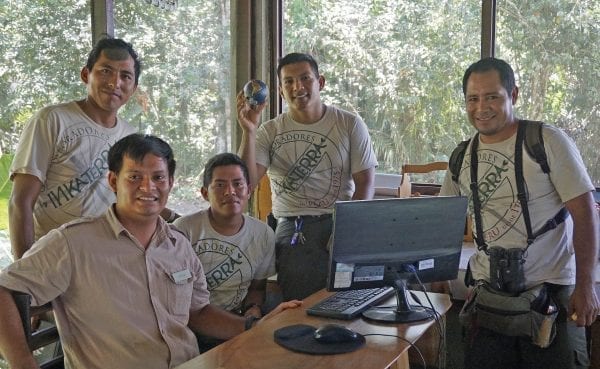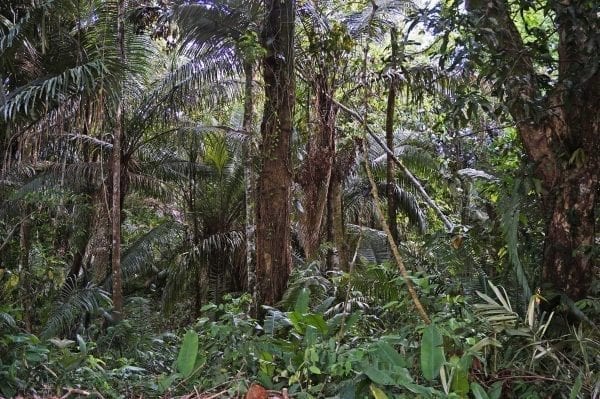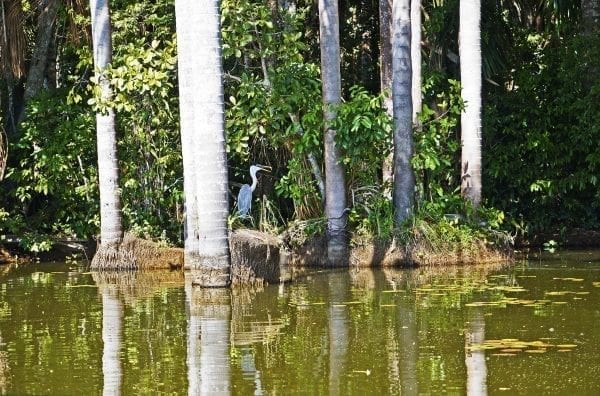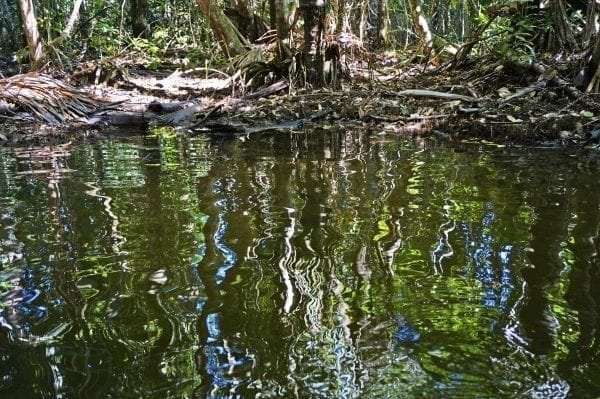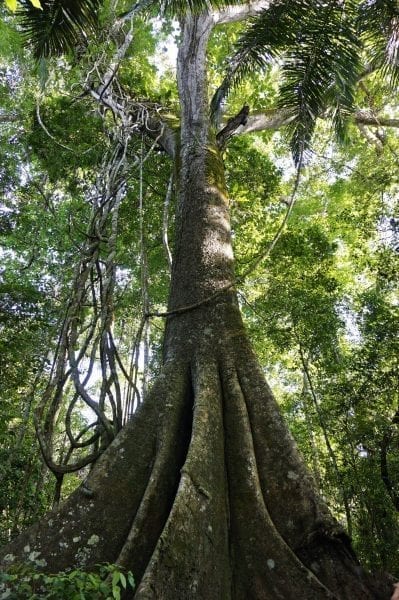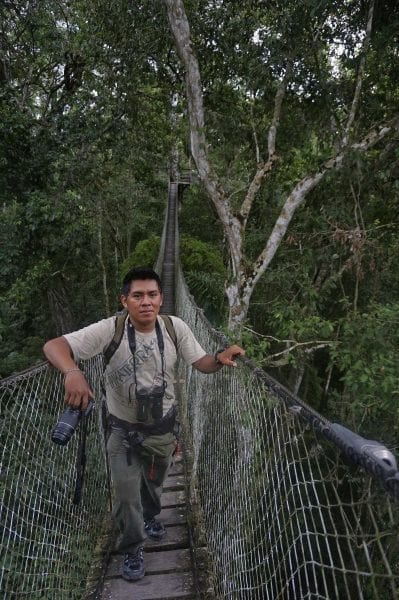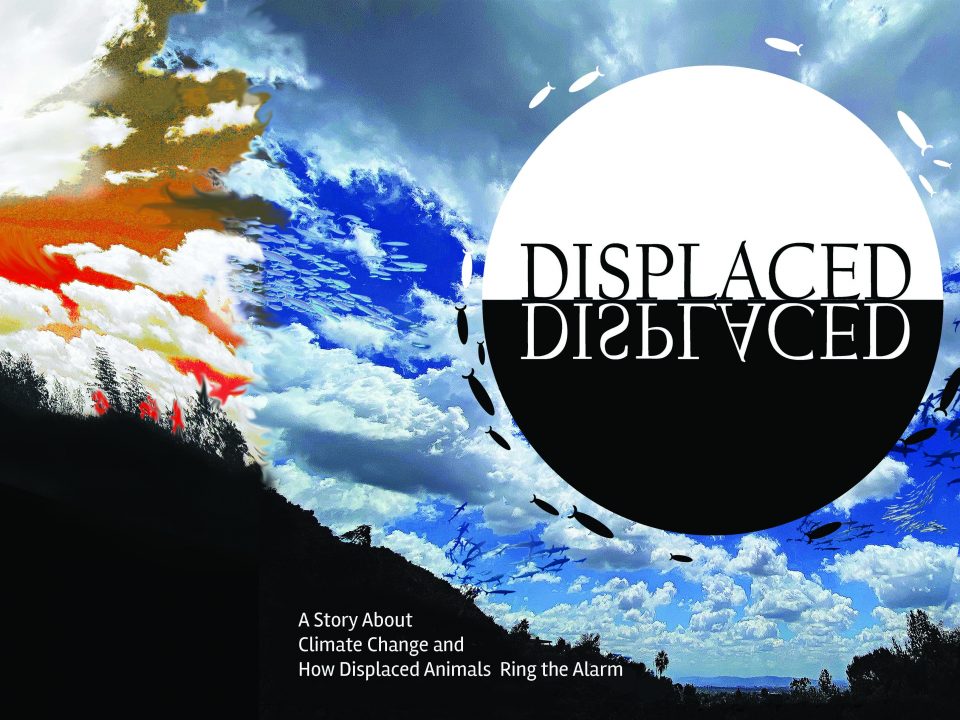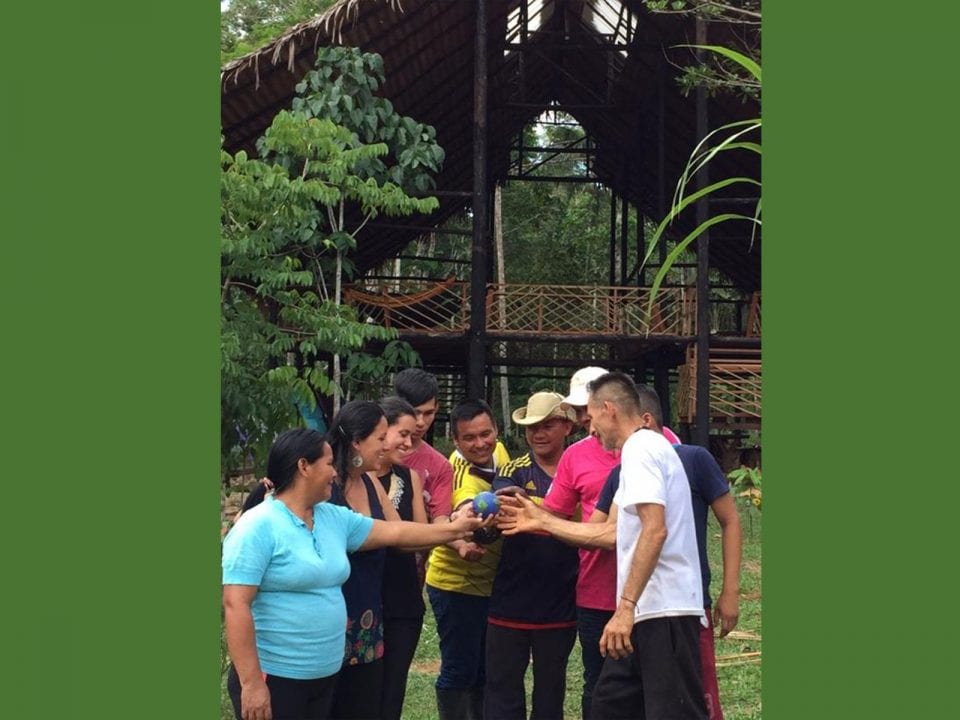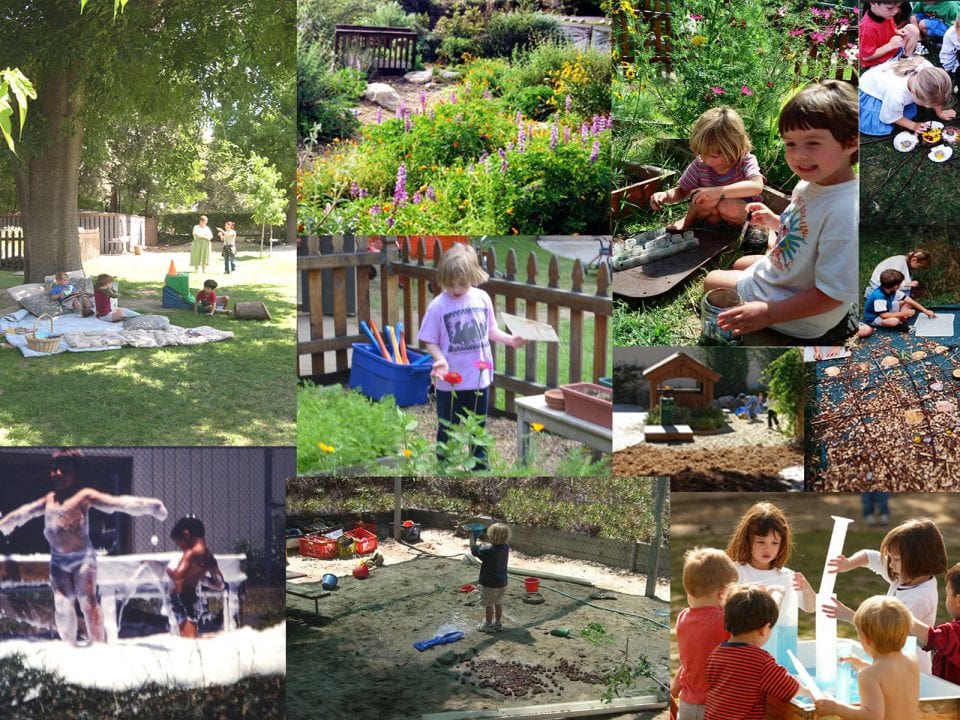- Did you receive a globe? Congratulations! Click Here for the Next Step!

Maintaining the Wetlands
September 29, 2018
For Global Togetherness: Carry The Earth at CERN
October 20, 2018Peruvian Amazon

A conversation with David Vilca Cabezas, the first carrier of EARTH 22:
David Vilca Cabezas in his short lifetime of 25 years has noticed the effects of climate change in the Amazon jungle where he grew up and lives today. He is also very concerned about the negative effects of the pressure of increased development in his area of the Amazon, the Madre de Dios region in the province of Tambopata.
David has always lived very connected to the land for shelter, food, medicine and where fresh air and forest diversity inspires in him a love of nature. He grew up hunting and fishing with his father and learning about the complex ecosystems of nature in the jungle and how its inhabitants lived sustainably in the forest.
The growing pressures of development have resulted in gold mining and logging in this area. Mining gold requires that the land is stripped of vegetation and soil is sifted to collect gold dust. Mercury is added to the sifted sand causing the gold dust particles to adhere to it. Then the mercury is burned off to extract the gold. This type of mining causes mercury pollution in the Amazon’s rivers killing fish and traveling up the food chain. Mercury becomes permanently embedded in the land and water of the pristine Amazon environment.
Illegal logging is another result of pressures of development and loggers will go into the Amazon illegally and cut down trees that took hundreds of years to develop. As David pointed out the damage is more than just removing one tree. Trees in the Amazon are filled with other living things including epiphytes and vines that use the tree for support, insects that have symbiotic relationships with the trees, birds that nest, animals that feed on the seeds or fruit of the tree or use the tree for shelter. One tree in the Amazon is really an entire mini-ecosystem of plants, animals, and insects.
David illustrates in his own life that we all make choices to survive. He did not have an easy time getting to where he is now. He was born as the youngest of eleven children with six older sisters and four older brothers. His education from grades 1-6 was in a single room schoolhouse with one teacher for all of the ages of students. At about age 11 his father had enough resources to allow him to go to the local city Puerto Maldonado to continue school accompanied by one older sister but by the time he was age 14-15, there was a need for him to work to supplement his father’s support. Jobs in the area consisted of gold mining and logging and he did this type of work to help pay to stay in school. He soon learned about the environmental problems that this type of work created and wanted to do something else. By age 17, his father offered him the opportunity to farm on land that the government had given him, but David chose to go the local university instead. At this point, he had to pay his own way by studying half a day and working as a taxi driver using a motorcycle on the other half of the day. He managed successfully to complete his university degree and began working in tourism locally, first in the staff of a small hotel, and then as a tour guide. Finally, he got his license as a tour guide and this year started working at Inkaterra Reserva Amazonica, a very reputable Eco-lodge set up to lodge and educate visitors and do nature research. Run as a carbon neutral facility that houses tourists, it supports the local economy by providing jobs for indigenous people.
David is delighted to Carry the Earth and pledges to use his education and his love of nature to teach both of the thousands of people that visit the Amazon on vacation as tourists as well as the people living locally as a means to address his environmental concerns. He also wants to encourage members of his family to become eco-guides as a better way of earning a living and helping the environment. In the future, if David ever has the means to do something more, he wants to replant forests that were cleared for gold mining and to encourage eco-tourism as a way to provide constructive jobs and help maintain the health of the Amazon forests.
Other guides in the group photograph below have been encouraged to contribute their stories as time allows them to do so in the future but the globe itself moves on to other areas.
